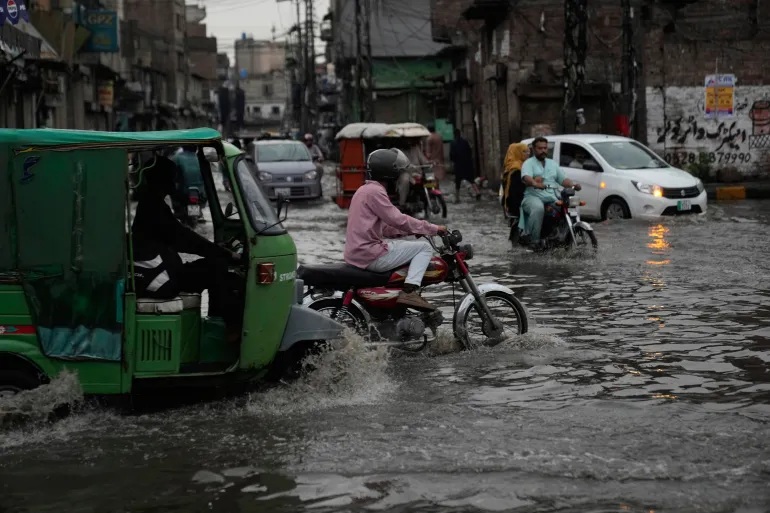Health
Cyanide suspected poisoning in Thailand hotel claims 6 lives

The Thailand Police have revealed that on July 17, 2024, six individuals tragically lost their lives over a suspected cyanide poisoning in Grand Hyatt Erawan Hotel room in Bangkok, Thailand.
Among the deceased, authorities believe the perpetrator responsible for the deaths may be among them.
Police added that the fast-acting and lethal substance was detected on drinking glasses and a teapot in the luxurious hotel room.
Interviews with the victims’ relatives by local press indicated a conflict over debt tied to an investment.
Late July 16, authorities discovered the bodies of all six victims, four of Vietnamese descent, and two U.S. citizens.
What Thailand police says
Local authorities said that U.S. Federal Bureau of Investigation (FBI) supports Thailand police in the investigation.
During a press conference, Commander of the Thailand Police Evidence Office, Trirong Phiwpan, shed more light.
Phiwpan said: “We detected cyanide in all six teacups.
“After the staff delivered teacups, two hot water bottles, milk and teapots, one of the six introduced cyanide.”
Police mentioned that autopsy results for the hotel incident were anticipated the following day.
The Vietnamese government reported close collaboration between its embassy in Bangkok and Thai authorities on the case.
Meanwhile, the U.S. State Department noted it was monitoring the situation, with local authorities leading the investigation.
Situated in a popular tourist area renowned for high-end shopping and dining, the Grand Hyatt Erawan, managed by the Erawan Group (ERW.BK), boasts over 350 rooms.
What is cyanide?
Cyanide is a highly toxic and potentially deadly chemical compound that contains the cyanide ion (CN−).
It’s often found in the form of hydrogen cyanide (HCN) or other cyanide salts.
Cyanide is commonly used in various industrial processes, such as mining, electroplating, and manufacturing.
However, it is also extremely dangerous because it can release toxic fumes and cause rapid respiratory failure, even at low concentrations.
Prolonged exposure to the chemical can be fatal, and it’s considered a serious hazard.
Some common sources of cyanide exposure include:
- Industrial accidents or spills
- Ingestion of cyanide-containing substances (like certain pesticides or plants)
- Inhalation of smoke from fires involving cyanide-containing materials
If cyanide exposure is suspected, one is advised to seek medical attention right away.
Treatment typically involves administering antidotes, such as methylene blue or hydroxocobalamin, to help counteract the effects of the poison.
Handling cyanide requires extreme caution and proper safety protocols to avoid accidents and ensure safe handling.
About Thailand
Thailand, officially known as the Kingdom of Thailand, is a country located in Southeast Asia.
Some key points about Thailand, besides the cyanide incident, include:
Geography: Thailand spans 513,115 square kilometers (about 198,115 square miles).
It is bordered by Myanmar to the northwest, Laos to the northeast and east, and Cambodia to the southeast.
It is also bordered by the Gulf of Thailand and Malaysia to the south, and the Andaman Sea to the southwest.
Thailand also shares maritime borders with Vietnam, Indonesia, and India.
Capital: The state capital and largest city is Bangkok.
Population: With over 70 million people, Thailand is home to a diverse mix of ethnic groups.
These ethnic groups include the Tai, Khmer, and Malay peoples.
Religion: Approximately 90% of the population practices Buddhism, while there are also minorities of Islam, Christianity, and other faiths.
Government: Thailand is a unitary parliamentary constitutional monarchy, with Vajiralongkorn as the monarch and Srettha Thavisin as the Prime Minister.
Economy: It has a GDP of around $1.644 trillion (PPP) and a per capita income of approximately $23,401.
Possible effect of the cyanide incident
The cyanide incident may possibly rub off negatively on the country’s tourism-driven economy.
Thailand expects 35 million foreign visitors this year, up from last year’s 28 million.
These visitors contributed 1.2 trillion baht ($33.71 billion) to the economy.
The cyanide incident was initially reported by some Thai media as a shooting.
The incident, meanwhile, could have detrimental impact on Thailand’s efforts to revive its crucial tourism industry.
The sector has been grappling with challenges since the onset of Covid-19 pandemic that claimed millions of lives.
For Diaspora Digital Media Updates click on Whatsapp, or Telegram. For eyewitness accounts/ reports/ articles, write to: citizenreports@diasporadigitalmedia.com. Follow us on X (Fomerly Twitter) or Facebook










